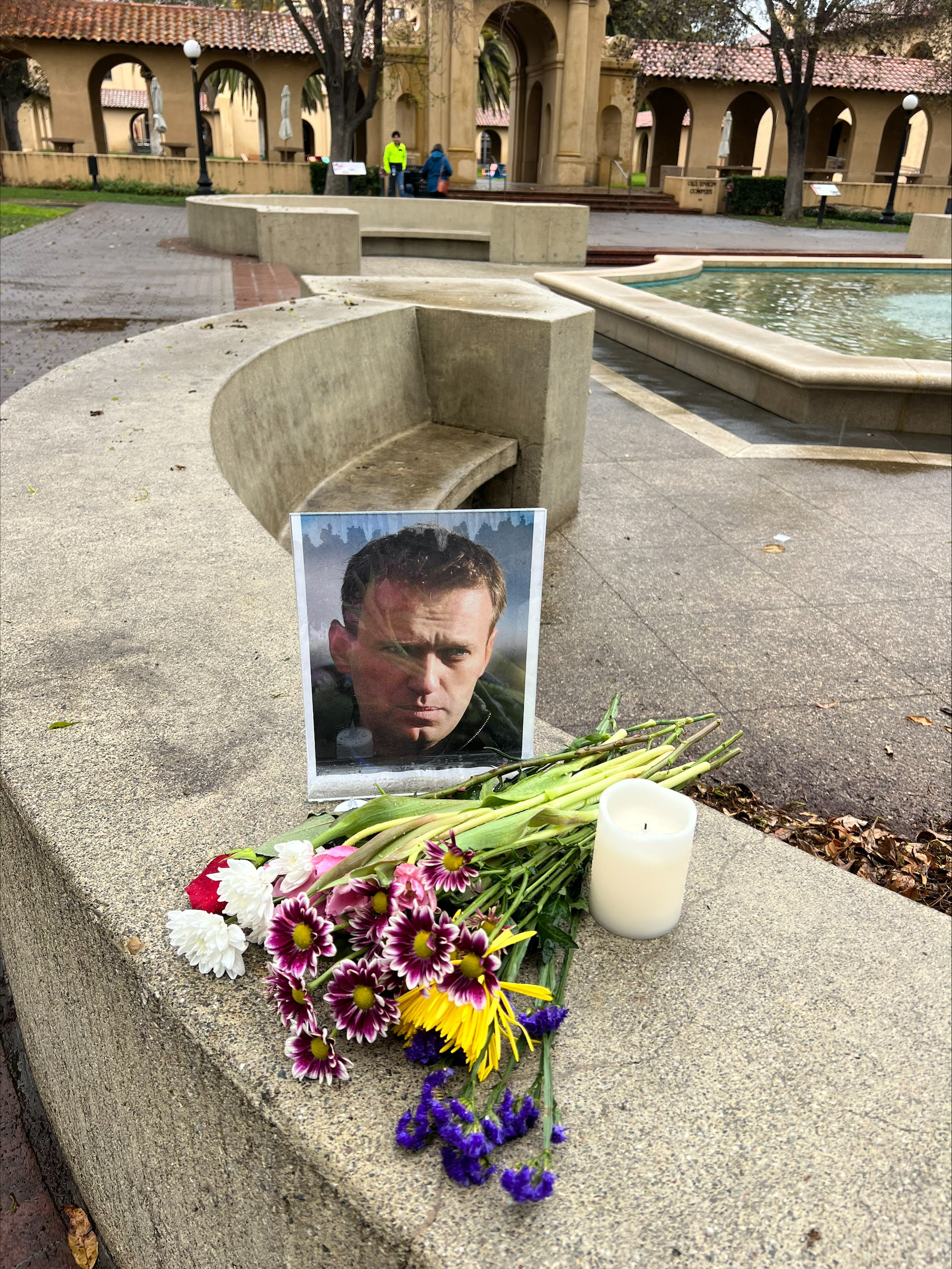For Sonya Epifantseva ’25, learning about the death of Russian opposition leader Alexei Navalny — Vladimir Putin’s most prominent domestic critic — felt “devastating.” The Russian Federal Penitentiary Service announced Navalny’s death on Feb. 16.
Navalny, 47, had been serving a 19-year prison sentence since 2021 for various charges including extremism, fraud and embezzlement, which had largely been criticized by international observers as “politically motivated.”
The day after his death was announced, Epifantseva and other students created a memorial to mourn Navalny in White Plaza.
Epifantseva wrote in an email to The Daily that she had gone to her first Navalny protest at the age of 15 in her hometown of Novosibirsk, Siberia. The opposition leader was the first person she had heard speaking openly about corruption and election manipulation in the Russian political system.
Navalny was a wake up call for her, she wrote.
“His death felt personal, like losing a friend who embodied hope and courage. That’s why I created the memorial, to mourn a man whose courage and strength Russia lost,” Epifantseva wrote.
The University did not respond to a request for comment on the White Plaza memorial or on potential resources available for students affected by Navalny’s passing.
Several days following Navalny’s death, the Center for Russian, East European and Eurasian Studies (CREEES) held a public event called “The Death of Alexei Navalny: Causes and Consequences” where former U.S. ambassador to Russia and Freeman Spogli Institute for International Studies (FSI) Director Michael McFaul, political science professor and FSI senior fellow Kathryn Stoner and CREEES Director and Soviet history professor Amir Weiner spoke.
“The event was a way of bringing the community together, to discuss and to deal with the current events more analytically,” Weiner said. “This was the main reason, but there was also a personal one: the shock of the brazenness of the killing that rattled the soul. His death was shocking but not surprising.”
Weiner called Navalny the “most promising opposition leader” since Putin came to power. He said Navalny occupied a unique position in Russia’s political landscape, describing him as part of a long and tragic lineage of dissidents who have paid heavy prices for their opposition.
Anna Siamionava ’26, who attended the CREEES event, said she has followed Navalny’s life since she was 13. Her identity has been shaped by Navalny’s courage to speak up against the Russian government and organize protests against corruption, she said.
Epifantseva urged optimism, saying she found faith in Navalny’s vision of a “peaceful, democratic Russia.”
“His death made me feel hopeless, but I’ve come to realize his legacy lives on in those he inspired, ensuring his vision and sacrifice won’t be forgotten,” Epifantseva wrote.
